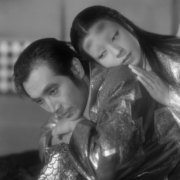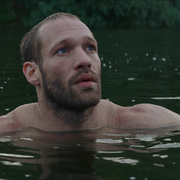Sisu Cinema: Nine From the Finnish New Wave
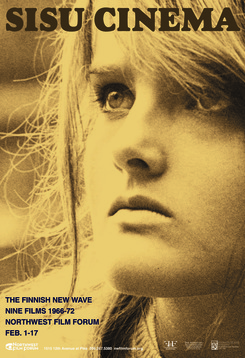
Sisu Cinema: Nine From the Finnish New Wave
FEBRUARY 1 – 17, 2008
The Finnish word sisu means resilience and survival under difficult circumstances. In shorthand it's often translated as “guts,” and is regarded as a characteristic Finnish trait. This may explain the frequency in Finnish New Wave films of scrappy outsiders who persevere in spite of often overwhelming odds. The term could also apply to the story of the Finnish film industry itself. When the production system dominated by large companies collapsed in the early 1960s, a Finnish new wave emerged, films made by small companies and distinctive cinema personalities. Following on the heels of France's auteurist cinema, Finland introduced its own brand of dark comedic works exploring idealism and youth. This generation of transition steered the Finnish film industry into the mid 1970s. SISU CINEMA highlights the works of Finland's greatest practitioners of the era. The program begins with the most influential works by auteurs Jörn Donner (who would later produce Bergman’s FANNY AND ALEXANDER) and Mikko Niskanen, followed by films from notable directors Jaakko Pakkasvirta, Risto Jarva, and Eija-Elina Bergholm. From these films and filmmakers we learn that sisu is not just a plot device – it's Finland's indelible image of itself.
Curated with assistance from Satu Laaksonen at the Finnish Film Archive and Andrew Nestingen at the University of Washington.
Sponsored by the Finlandia Foundation, UW Department of Scandinavian Studies, American Scandinavian Foundation
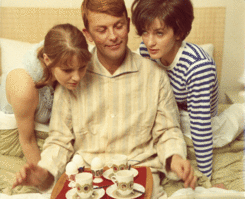
Sixty Nine 69
Sponsored by the Finlandia Foundation, UW Department of Scandinavian Studies, American Scandinavian Foundation
Feb 01, 2008
Jörn Donner, Finland, 1969, 35 mm, 98 min
SIXTYNINE, Jörn Donner's second Finnish production after having defected to Sweden for the early part of his career, is a gleeful game of sexual noughts and crosses, with two men and two women interacting with one another in a series of situations that poke fun at everything from dentistry to gynecology, post-sauna sex to dog breeding. The film gives a bittersweet account one woman's experience learning lessons of marriage and love lost and found. The title refers to the year the film was made.
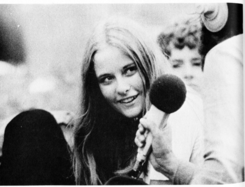
Fuck Off! Images of Finland
Sponsored by the Finlandia Foundation, UW Department of Scandinavian Studies, American Scandinavian Foundation
Feb 03, 2008
Jörn Donner, Finland, 1971, 35 mm, 104 min
FUCK OFF! IMAGES OF FINLAND is a carefree, many-faceted, and brazen portrait of Finland thirty years ago. Made in a time when impoverished farmers were moving to the cities and poor Finns hired themselves out as guest workers in rich Sweden, the film was considered too "free" for the board of censors. It could only be shown in its full length twenty years later. "This film is the craziest thing we have ever made yet. But I don't regret a minute of it for I believe that no one will ever see a rounder picture of the Finns. And if the film is crazy it's the Finnish people's fault," says director Donner.
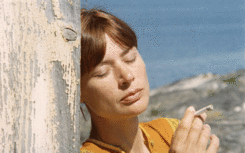
Anna
Sponsored by the Finlandia Foundation, UW Department of Scandinavian Studies, American Scandinavian Foundation
Feb 02, 2008
Jörn Donner, Finland, 1970, 35 mm, 82 min
Anna (Harriet Andersson) is a forty year-old anesthesiologist who takes a vacation with her teenage daughter (Maarit Hyttinen) and their maid (Pertti Melasniemi). She turns down her lover's request to marry because she believes the union will not maintain their status as equals. Next door to the trio live a boozy ex-politician (Papani Perttu) and his teenage son (Tapio Rautavaara). The maid and the neighbor boy engage in a passionate affair while Anna reflects on her middle age and examines her changing values in regards to life, love and career. Donner evokes the cool moodiness of Antonioni, using the Finnish countryside to evoke the sombre interior mood of ANNA. The feelings stirred by this film will stay with you long after you've left the theatre.
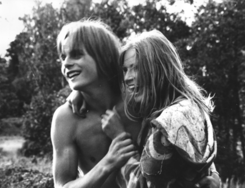
Summer Rebellion
Sponsored by the Finlandia Foundation, UW Department of Scandinavian Studies, American Scandinavian Foundation
Feb 15, 2008
Jaakko Pakkasvirta, Finland, 1969, 80 min
Young photography model Susanna and her alienated teenage brother Veli spend the summer of 1969 traveling around Finland, mostly with another girl and her boyfriend. Sporting the latest fashions and trendy hairdos, they naïvely observe and criticize the modern consumer society, with its advertisements, expensive homes, and fancy lifestyles. The film delivers a political agenda with a cheerful, tongue-in-cheek mixture of documentary observations, witty fake commercials, contrived interviews, and a jazzy soundtrack by the prog-rock group Wigwam.
Skin Skin
Sponsored by the Finlandia Foundation, UW Department of Scandinavian Studies, American Scandinavian Foundation
Feb 08, 2008
Mikko Niskanen, 1966, Finland, 35mm, 89 min
SISU CINEMA: NINE FROM THE FINNISH NEW WAVE
This depiction of four urban youths and their excursion to the countryside was among the most popular films of the 1960s in Finland. It tackles a theme that is reminiscent of the German PEOPLE ON SUNDAY of 1929. The film marked Kaj Chydenius' start as a film composer and features several songs that have since become Finnish evergreens. Additionally, it showcases a brilliant cast of four actors who created a fun, but melancholy, portrayal of youth, sexual liberation and the obstacles to love. For the young people in this Finnish film, the countryside is no longer a place to work or live, but an embodiment of natural freedom.
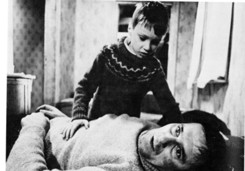
Eight Deadly Shots
Sponsored by the Finlandia Foundation, UW Department of Scandinavian Studies, American Scandinavian Foundation
Feb 10, 2008
Mikko Niskanen, 1972, Finland 35mm, 145 min
SISU CINEMA: NINE FROM THE FINNISH NEW WAVE
Niskanen's saga is simply one of the finest works of the Finnish cinema. It challenges the boundaries between life and film by giving form to the grief and pity found in only the most profound works of art. In a small Finnish rural community in the winter of 1969, a man shot four policemen who came to arrest him at his home. Director Mikko Niskanen went to visit this man in prison and partially based the script of this fictional film on their conversation. EIGHT DEADLY SHOTS dramatizes the helplessness of an individual in an unjust society. The film portrays the hardship of life for a small farmer's family. Though an itinerant preacher promises the joys of heaven as liberation from the gloom, alcohol brings numbness, and violence a brief feeling of power and life, none of these can provide salvation. As stated by Niskanen in the introduction, “This film does not claim to reproduce a real event although the story is based on it in some important respects. This is the truth I have seen and experienced, born myself in these surroundings”.
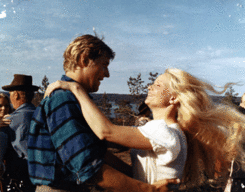
Song of the Scarlet Flower
Sponsored by the Finlandia Foundation, UW Department of Scandinavian Studies, American Scandinavian Foundation
Feb 09, 2008
Mikko Niskanen, 1971, Finland, 35mm, 62 min
SISU CINEMA: NINE FROM THE FINNISH NEW WAVE
SONG OF THE SCARLET FLOWER, previously adapted for the Finnish screen in 1938, is based on a novel by Johannes Linnankoski. A likable but difficult drifter moves from place to place, unable to put down roots. On the way, he becomes involved with a number of women, all of whom he eventually leaves behind. A film that questions the moral contradictions of the Finnish soul, SONG OF THE SCARLET FLOWER pulls no punches. In questioning the double standard to which women are held, the film allegorically renders the plight of modernity, in which individuals find themselves without boundaries.
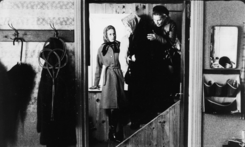
Poor Maria
Sponsored by the Finlandia Foundation, UW Department of Scandinavian Studies, American Scandinavian Foundation
Feb 17, 2008
Eija-Elina Bergholm, Finland, 1972, 81 min
The debut film from Eija-Elina Bergholm, is tragic tale of a successful businesswoman, whose affair with a younger man is derailed by her growing fear of loneliness. When she objects to his making love to another woman in their apartment, he kicks her out. She moves back in with her mother after getting sick and losing her job. When she is forced to commit her aged grandmother to an asylum, she suffers an emotional breakdown. Winner of The Finnish State Award and the Karlovy Cary Film Festival.
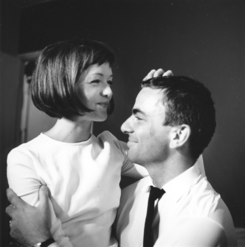
The Diary of a Worker
Sponsored by the Finlandia Foundation, UW Department of Scandinavian Studies, American Scandinavian Foundation
Feb 16, 2008
Risto Jarva, Finland, 1967, 35mm, 90 min
Risto Jarva was a prominent and influential director in the Finnish New Wave, who was unfortunately killed at forty-three in a car accident following the premiere of his film YEAR OF THE HARE. Jarva used his skills to portray nature, young urban intellectuals, the worker, and visions of the future. He explored the possibility of love and companionship with a playful, humorous and contemplative touch. THE DIARY OF A WORKER was Jarva's breakthrough film, "the first Finnish worker movie," and was regarded by Finnish critics as the finest national film of the 1960s. In the film, a factory worker battles ennui as he struggles to balance his job and his home life. To advance his career, he accepts a position at a distant factory, leaving his wife behind.

